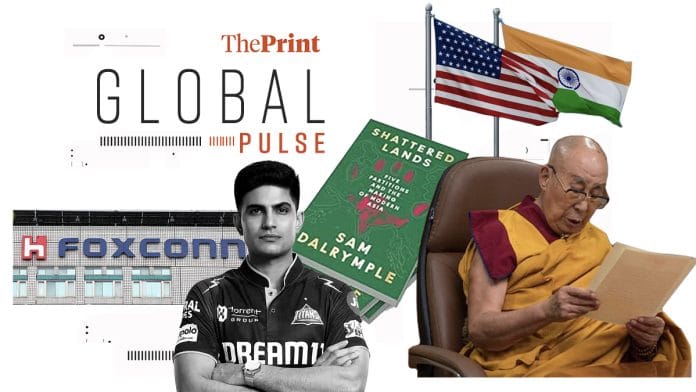New Delhi: Donald Trump and India’s first prime minister Jawaharlal Nehru have next to nothing in common, but it’d be worth the US President’s while to take note of the Licence Raj, as countries like India rush to negotiate trade deals with Trump before the US’ global tariffs kick in on 9 July, according to The Economist.
Licence Raj refers to the economic policies of the Indian government from 1951 to 1990.
“The example of the Licence Raj suggests that damage from trade restrictions goes far beyond just losing benefits such as cheaper imports and new export markets. Restrictions allow new distortions to proliferate: companies devote their efforts to tilting the playing field in their favour, officials discover new ways to benefit at the public’s expense and smugglers profit from breaking the law. All this has an insidious effect on the economy, politics and society, which runs far beyond the sizeable damage resulting from lower economic growth,” it reads.
Sankalp Phartiyal, Debby Wu and Mark Gurman report in Bloomberg that, in a blow to India’s iPhone ambitions, Foxconn has asked “hundreds” of Chinese engineers and technicians to return from its iPhone factories in India.
“Foxconn’s move follows the steps Beijing has taken to make it harder for technology, skilled labour and specialised equipment to leave China for manufacturing upstarts such as India. The South Asian nation and countries including Vietnam are trying to attract global tech companies, taking advantage of US-China tensions that are prompting firms to diversify their locations,” the report says.
The Dalai Lama, ahead of his 90th birthday, outlined his succession plan amid a quest for modernisation and an “authoritarian Beijing”, report Mujib Mashal and Hari Kumar in The New York Times.
“Traditionally, the search for a new Dalai Lama begins only after the current one dies. Tibetan Buddhist leaders say they follow ancient customs of parsing mystical visions, clues left by the previous Dalai Lama and astrology to help narrow their search. In the past, search committees would travel around Tibet testing candidates to see if they showed any traits that could be deemed especially holy,” says the report.
In The Guardian, Nishad Sanzagiri reviews Sam Dalrymple’s Shattered Lands, which expands the lens through which the British empire is viewed.
“Among the most poignant moments in the book is a brief account of a Bible salesman from the Naga hills who volunteers to fight in the second world war. The Nagas are ethnically Tibeto-Burman peoples native to the borderlands of north-east India and north-west Myanmar, with distinct cultural traditions and a strong sense of nationhood that long predates these modern states. When asked if he is Indian or Burmese, the man replies, ‘I am a Naga first, a Naga second, and a Naga last’,” the review notes.
BBC’s Matthew Henry deconstructs newbie cricket captain Shubman Gill’s performance in India’s latest test series in England. “The travelling India press pack is large and unrelenting and Gill struggled to sate them. The message was muddled. His batting in Birmingham 24 hours later was not,” he writes.
(Edited by Nida Fatima Siddiqui)
Also Read: ‘No true escape’ from the Indian heatwave & the ‘allure’ of the manufacturing bet






